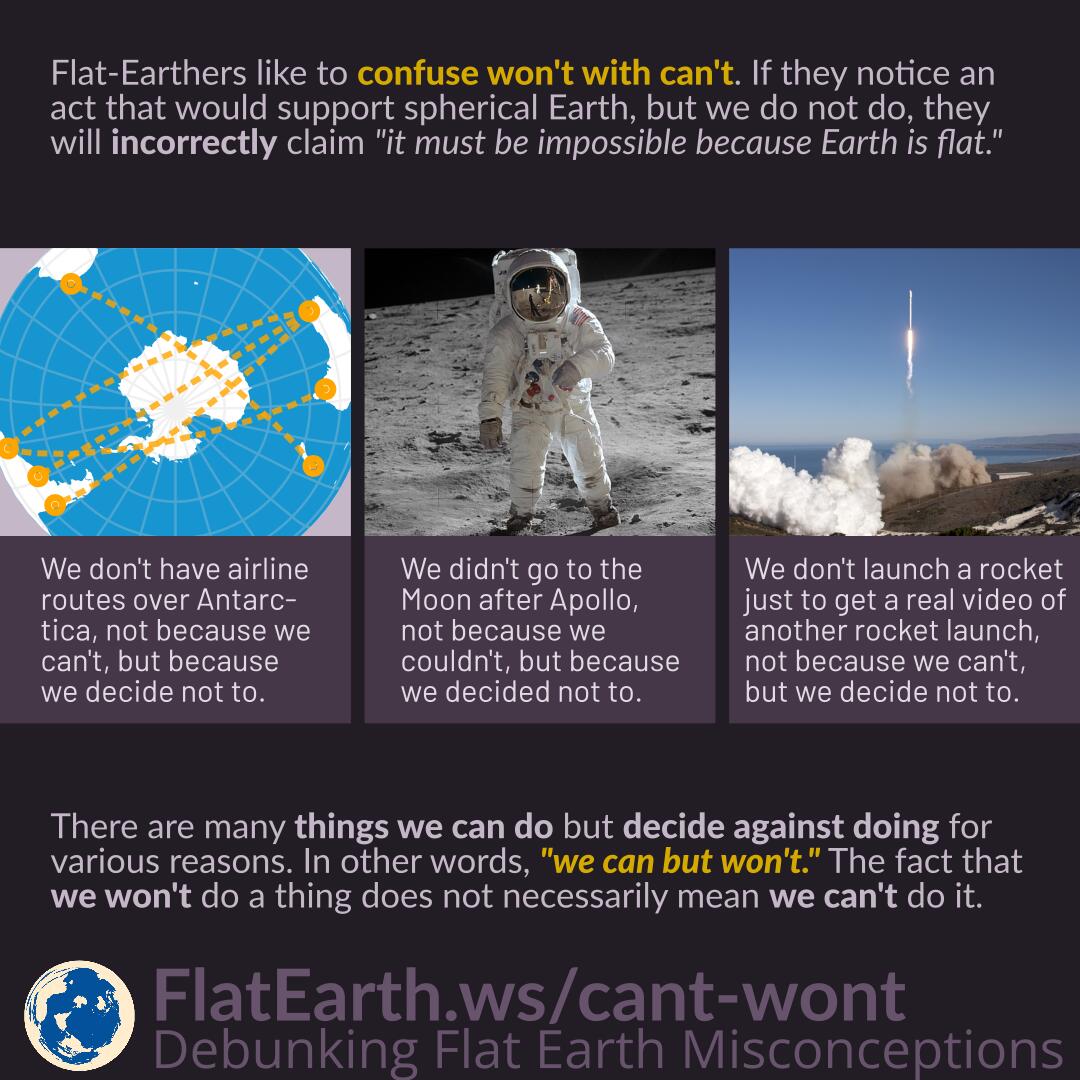Flat-Earthers like to confuse won’t with can’t. If they notice an act that would support spherical Earth, but we do not do, they will incorrectly claim, “it must be impossible because Earth is flat.”
There are many things we can do but decide against doing for various reasons. In other words, “we can but won’t.” The fact that we won’t do a thing does not necessarily mean we can’t do it.
Some examples:
- “No flight route over Antarctica exists; therefore, it is impossible to fly over Antarctica.”
- “No humans went to the moon after Apollo; therefore, it is impossible to go to the moon.”
- “We don’t launch a rocket for the sake of recording the launch of another rocket; therefore, it is impossible to launch a rocket to space.”
The original premise is “if we can’t do X, then we don’t do X.” It is a valid premise, but flat Earthers misinterpreted it as “If we don’t do X, then we can’t do X,” which is the fallacy of affirming the consequent.
The correct derivation from such a premise is contrapositive or modus tollens: “If we do X, then we can do X.”
Then again, if flat Earthers incorrectly think that something is never done, but we can actually show that it has been done, they will only start to come up with other things that they feel are never done. They will use those things as “evidence” of anything they want to prove. Such behavior is called moving the goalposts.
References
- Modus tollens – Wikipedia
- Proof by contrapositive – Wikipedia
- Affirming the consequent – Wikipedia
- Denying the antecedent – Wikipedia


